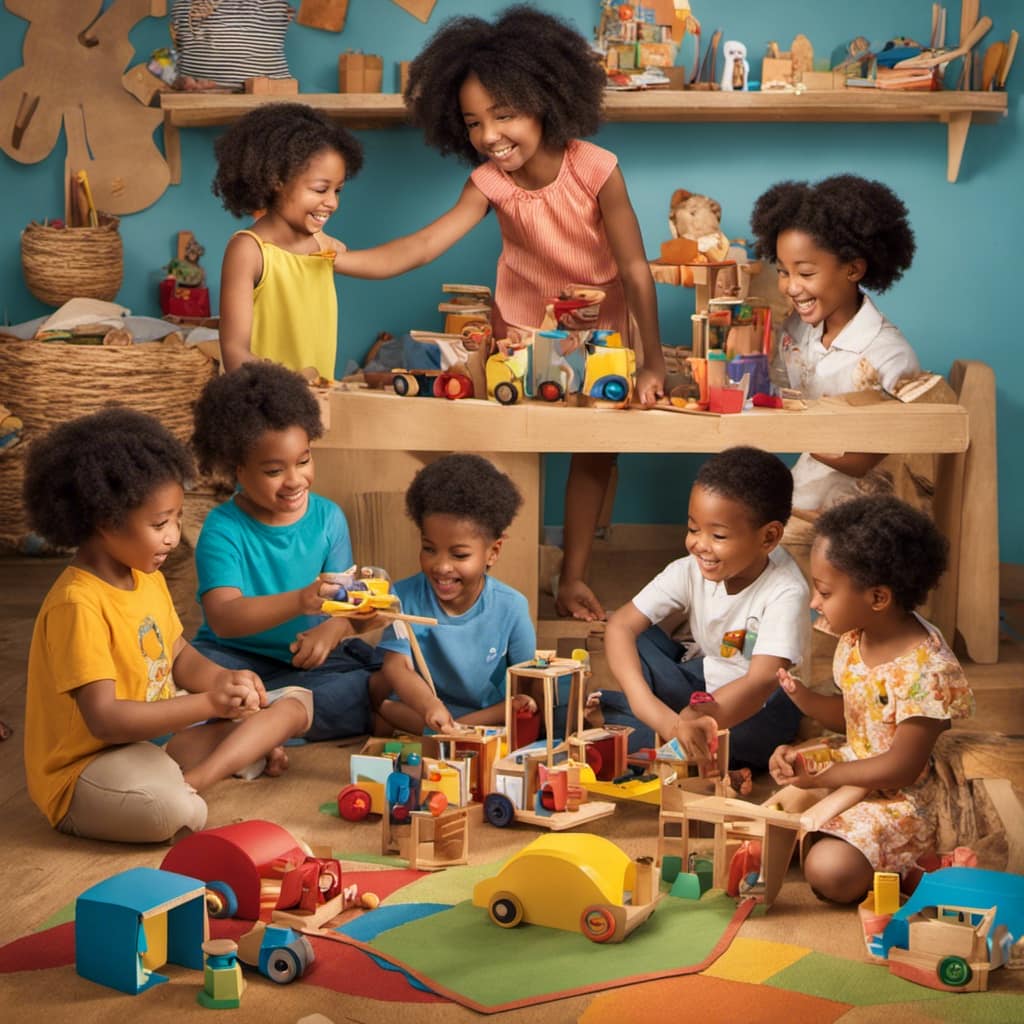Being in charge of guiding young minds, whether it be as a mom or dad, never fails to amaze me when witnessing the incredible journey of child growth. Watching kids progress and grow in essential areas like thinking, moving, emotions, and communication is truly fascinating. If you want to understand the magic of child development, keep reading to discover valuable insights and tips!
This article delves into the importance of nurturing each of these domains, providing valuable insights and research-based strategies. From stimulating cognitive skills to promoting physical well-being, fostering social-emotional development, and enhancing language and communication abilities, understanding these domains is crucial for supporting children’s overall growth and success.
Key Takeaways
- Cognitive development includes thinking and problem-solving abilities, language development, memory, and logical reasoning.
- Physical development involves the growth and maturation of the body, including gross and fine motor skills.
- Social-emotional development involves understanding and managing emotions, developing social skills, and building positive relationships.
- Language and communication development are essential for social interactions, understanding, and academic success.
The Importance of Cognitive Development
I understand the importance of cognitive development as it involves thinking and problem-solving abilities, language development, memory, and logical reasoning. Cognitive development plays a vital role in shaping a child’s overall development.
One key aspect of cognitive development is the role of play. Play provides children with opportunities to explore, experiment, and engage in problem-solving activities, which helps develop their cognitive skills.
Additionally, early experiences have a significant impact on cognitive development. Positive early experiences, such as exposure to stimulating environments and responsive caregiving, can enhance a child’s cognitive abilities. On the other hand, negative experiences or deprivation during early childhood can hinder cognitive development.
It is crucial to provide children with a supportive and enriching environment to promote optimal cognitive development.

Nurturing Physical Growth and Development
Engaging in physical activity has numerous benefits for children’s overall development. It promotes brain development, enhances problem-solving skills, and boosts self-esteem. Motor skill milestones are important markers in a child’s physical development, from the first steps to running and jumping. These milestones signify the growth and maturation of the body. However, physical development goes beyond just the body; it also impacts cognitive and emotional growth. Research shows that physical activity supports brain development and helps children improve their problem-solving abilities. Active play and movement contribute to holistic development, fostering not only physical but also cognitive and social-emotional skills. Additionally, physical activity has been found to boost self-esteem, as children gain confidence in their abilities to move, explore, and conquer challenges. Therefore, encouraging children to engage in regular physical activity is crucial for their overall development.
Promoting Social-Emotional Well-being
Encouraging positive relationships and teaching emotional regulation skills fosters social-emotional well-being. Building resilience and developing empathy are key components in promoting healthy social-emotional development in children.
Resilience enables individuals to bounce back from adversity and cope with life’s challenges, while empathy allows them to understand and respond to the emotions of others. Research has shown that children who possess these skills have higher self-esteem, better academic performance, and improved mental health outcomes.
To build resilience, it is important to provide a supportive environment that encourages problem-solving, decision-making, and independence. Teaching empathy involves helping children recognize and understand different perspectives, promoting kindness and compassion towards others.
Language and Communication Skills for Success
Developing strong language and communication skills is crucial for success in various areas of life. Language skills play a significant role in academic success, as they are essential for reading, writing, and comprehension. Effective communication is also vital for building relationships and understanding others.
To enhance language development, it is important to implement strategies such as encouraging early language exposure through reading and storytelling, providing opportunities for meaningful conversations and discussions, engaging in activities that promote vocabulary expansion and language comprehension, utilizing visual aids and gestures to support language learning, and seeking professional help, such as speech therapy, for children with language delays.

Research shows that strong language skills positively impact academic achievement, critical thinking, and problem-solving abilities. By nurturing language development, we can set children up for future success in their educational journey.
Recognizing and Addressing Developmental Delays
Recognizing and addressing developmental delays is crucial for providing necessary support and ensuring children receive the assistance they need to thrive in their overall development.
Early intervention strategies play a vital role in identifying developmental milestones and addressing potential issues promptly. By recognizing specific indicators of delay, such as speech and language delays or motor skill deficits, targeted interventions can be implemented to provide the necessary support.
Early intervention not only helps children catch up in their development but also prevents further delays and promotes positive outcomes in the long run.
It is important to understand that every child develops at their own pace, but if there are concerns about a child’s development, it is essential to seek professional guidance and intervention as early as possible.
Frequently Asked Questions
What Are Some Common Cognitive Development Milestones in Infancy and Early Childhood?
In infancy, cognitive development milestones include recognizing faces and objects. In early childhood, language, memory, and logical reasoning develop. Physical activity impacts cognitive development in children, promoting brain development and problem-solving skills.

How Does Physical Activity Impact Cognitive Development in Children?
Physical activity benefits cognitive development in children by promoting brain development, enhancing problem-solving skills, and boosting self-esteem. Engaging in active play and movement supports holistic development, impacting cognitive and emotional growth.
What Are Some Strategies for Promoting Positive Social-Emotional Development in Children?
To promote positive social-emotional development in children, I focus on building empathy and self-confidence. By fostering a nurturing environment, encouraging positive relationships, and teaching emotional regulation skills, I lay the foundation for lifelong success.
How Do Language and Communication Skills Contribute to Academic Success?
Language and communication skills play a crucial role in academic success. Strong language acquisition and effective communication enhance comprehension, reading, and writing skills, allowing for meaningful engagement and expression of thoughts, leading to educational achievement.
What Are Some Signs That Indicate a Potential Developmental Delay in Children?
Some signs that may indicate a potential developmental delay in children include delayed speech or language skills, difficulty with motor skills, social withdrawal, and persistent behavior problems. Early identification and intervention are crucial for support.
Conclusion
In conclusion, as a parent or caregiver, it is crucial to understand and nurture the four domains of child development.
By fostering cognitive development, we can help children develop critical thinking and problem-solving skills, setting them up for academic success. Engaging in physical activities promotes brain development and enhances cognitive and emotional growth.

Supporting social-emotional development helps children form positive relationships and develop important life skills. Finally, by addressing language and communication delays, we can ensure that children have the tools they need for effective social interactions and academic achievement.
Remember, a well-rounded approach to child development is key to their overall growth and success. So, let’s embrace these domains and provide the support and guidance our children deserve.











